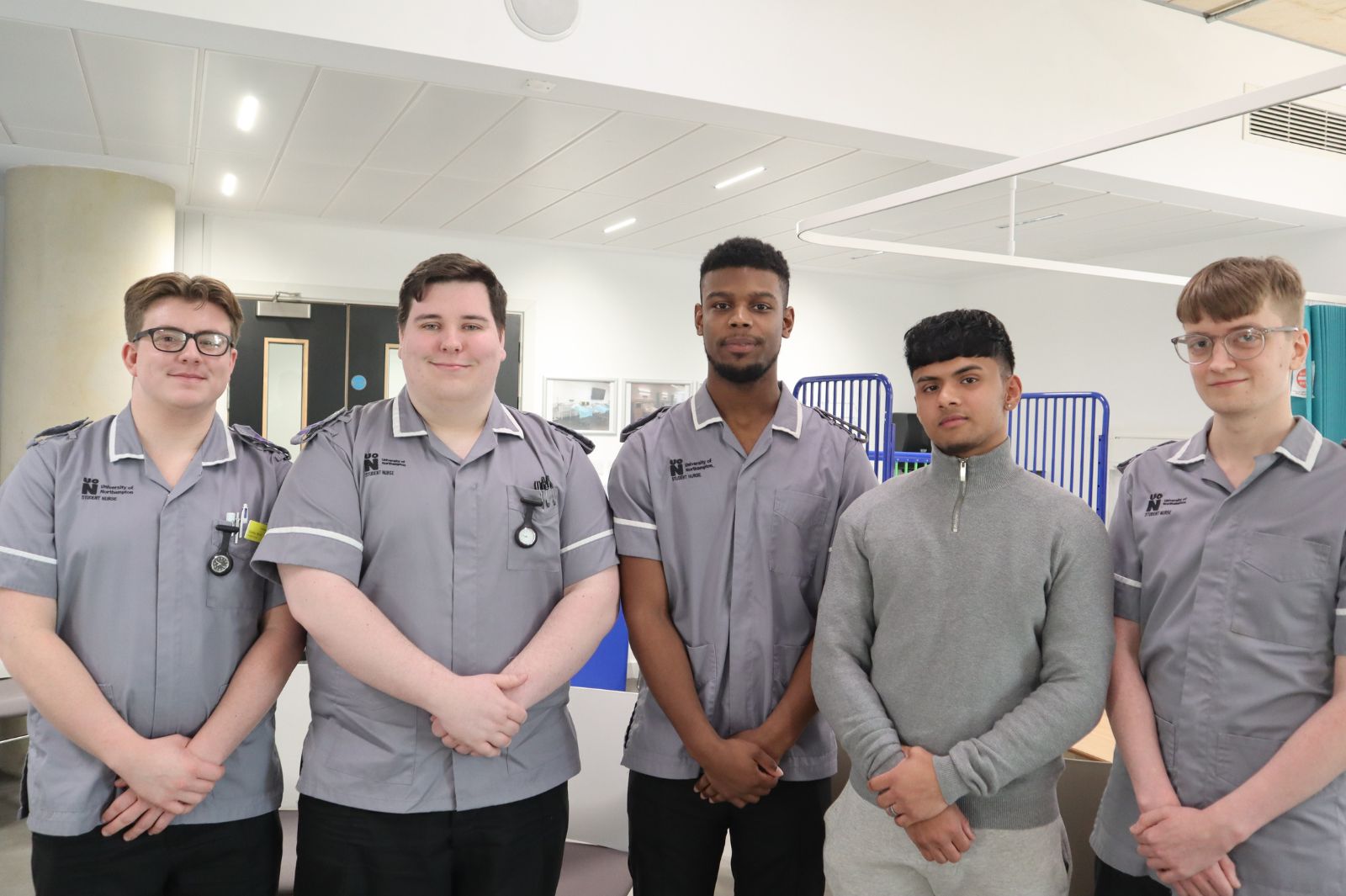Added value: Nursing students talk about what men can bring to the profession
Date 21.02.2023

Bringing together the different qualities of male and female nurses can lead to the best care for children and young people.
And one group of University of Northampton (UON) students, who make up a small but dedicated group here, are doing their bit to help with this.
There are four main fields of nursing, with one group trained to provide specialist care for babies and children up to and including 18 years of age, as well as supporting their families.
Of the total number of all nurses on the Nursing and Midwifery Council’s register in the UK last year – 758,303 – 10.3% identify as male, and children and young people’s nurses are vastly represented by female professionals.
But over recent years, there has been increasing recognition of the value male nurses can bring to the profession, with a drive to boost their numbers across the entire workforce.
Each year, UON teaches approximately 80 students on its Children & Young People’s Nursing degree and, although the vast majority (around 98%) are female, for the current cohort of students (2020-22) the University has a ‘bumper crop’ of seven male students.
Stanley Blunt (picture on the left) is in the final year of his degree and says: “One thing I’d like to say about children’s and young people’s nursing is the role isn’t all about care for babies – hugely important as it is – but you also work with older people, sometimes up to 18 years of age. My last placement was in Accident & Emergency and I saw a few young people with mental health issues. I enjoy working in this area and seeing the difference I made to their wellbeing.
“When I was younger, I might have felt more comfortable when in hospital treated by a male nurse, especially if I needed an examination of a more intimate region. This isn’t to say female nurses can’t or shouldn’t do this – far from it – but perhaps some younger, male patients would prefer the option of a male nurse.”
Matthew Rutherford (pictured next to Stanley), also in his final year, adds to Stanley’s thoughts: “While I believe 100% that men can make great children’s and young people’s nurses, there’s a lot to be said about men and women in the profession working together. One doesn’t cancel out the other as we each have different experiences, skills and abilities to bring to the ward that can have a big impact on patient care. This is how I work while on placement and in my lectures and it’s what I want to take into practice.
“We all want to give the best-rounded care to our patients and as male nurses will always do this to the best of our abilities. It’s not that males can only treat males and females can only treat females, but we remember what it was like being a teenage boy, or a young boy, and we can offer treatment from that perspective if the patient wants that. It can work the same way for younger female patients.”
Watch these videos of Stanley, Matthew and fellow students Alex Oliveira, Anson Antony and Mathew Lawton discuss why they love Children and Young People’s Nursing.
Find out more about our degree in Children and Young People’s Nursing.